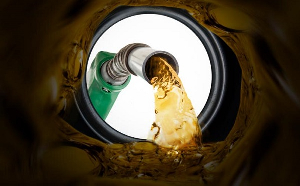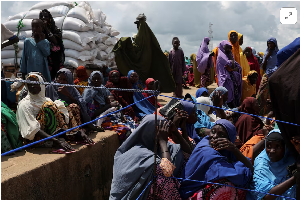This article is in two installments. The first part deals with the promise of the recent oil discovery in the Cape Three points area in Ghana holds for its people and the economy, and the second installment will cover the perils of the oil discovery.
There’s no doubt that the discovery of oil in Ghana is good news for Ghana’s economy. It has the potential of transforming our economy and being its engine of growth if managed well. Our oil imports take a big chunk of our foreign exchange earnings. With oil in Ghana, we can save our hard earn foreign exchange and also earn more from oil revenues to power our development efforts. We need money to build schools, hospitals, provide uninterrupted electricity, clean water resources, train our human resources in new areas that power the global e-economy, create jobs, and develop the infrastructure and the modern technology to support our development efforts. There is no question about the fact that oil revenues will help greatly in this direction.
With prices high and the Middle East in turmoil, African oil reserves are more alluring than ever. The Gulf of Guinea is now the Oil industry’s new El Dorado. The region is hot and it is only going to get hotter with respect to oil exploration. By some estimates, Africa holds about 12% of the World’s oil reserves. African oil is said to be of a high quality with low sulphur content that requires little refining to get it to the pump. A number of other factors are now working in the interest of African oil producers which Ghana may soon join. The US is strategically shifting the bulk of its oil imports away from the volatile Middle East. In 2005, the US imported more oil from Africa than from the Middle East, and more from the Gulf of Guinea than from Saudi Arabia and Kuwait combined. When Ghana’s oil starts flowing there is going to be a ready market for it from the US and perhaps India and China.The Gulf of Guinea is increasingly becoming important in the search for alternative areas of supply because of it’s proximity to the US, cutting shipping cost to the World’s largest consumer. Most of the reserves are offshore which means there is no need to build costly pipelines across countries to get the black gold to the market. Security is a crucial aspect of the mix here. West Africa may have a history of instability but most of the oil deposits are out to the sea and assets of international companies have not been prone to the nationalizations common in the oil industry from Mexico to Venezuela to Russia of today. Although there has been attacks on oil installations in Nigeria, this does not compare to the all out violence pertaining in Iraq. To protect supply lines in the Gulf of Guinea, the US is considering a permanent Naval base in the region and US naval ships constantly patrols the waters of Gulf of Guinea. No wonder then the US State Department designated African oil as “strategic national interest” about five years ago. According to one US senior official, “African oil is higher quality, cheaper, safer, more accessible, and there seem to be more discoveries everyday”.
The National Intelligence Council, a US think tank predicts that the Gulf of Guinea will supply 20-25% of total US oil imports by 2020. It is further estimated that if the price of oil stays above the $50 per barrel mark, oil producing countries in the Gulf of Guinea will earn over $1 trillion from oil exports, roughly double the amount of foreign aid that has flown into the continent Africa since independence in the 1950’s and 1960’s.
That should be good news for Ghana which will soon join the club. It is also good news for the sub region which has some of the poorest countries in the World’s poorest continent. After all, Norway and Britain used North Sea Brent crude oil to underwrite their welfare states, while small oil powers like Oman and Brunei found themselves catapulted out of subsistence living in a generation and has given its people a decent standard of living from oil money. But these are a few success stories, the story of many other oil producing countries are unfortunately negative. The question is: CAN GHANA GET IT RIGHT WHERE SO MANY IN AFRICA GOT IT WRONG? May be Yes, may be No. The President said, ”With oil as a shot in the arm, we are going to fly”. Are we? That’s the subject of the second part of this article. Don’t miss it.













